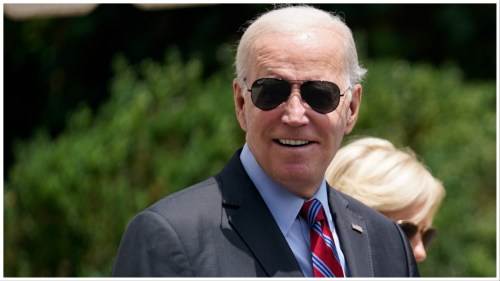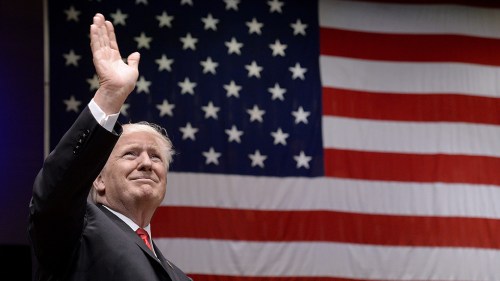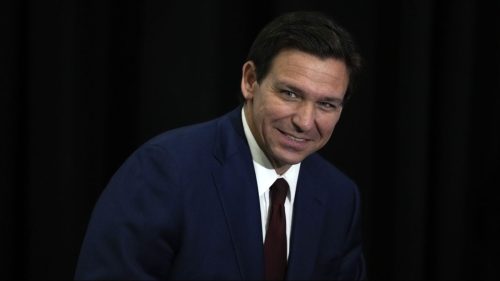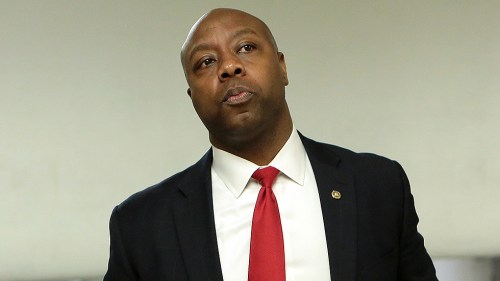What to watch in the battle over Trump’s trial calendar
If prosecutors get their way, former President Trump will spend much of 2024 in a courtroom.
But as he defends himself against civil lawsuits and 91 criminal charges across four cases, Trump’s attorneys are pulling out the stops, raising various pretrial defenses that could cause delays and even get cases tossed entirely.
Trump faces parallel races to win the 2024 presidential election and slow-walk his criminal prosecutions from going to trial until then.
The former president’s court calendar has become so convoluted and ever-changing that a multi-jurisdictional game of chicken is underway, with judges acknowledging possibilities of delay but punting schedule adjustments down the road.
In one of Trump’s criminal cases, the judge has declined to discuss a trial delay until February, citing “many recent developments involving Mr. Trump and his rapidly evolving trial schedule.” Last week, a judge in another of Trump’s criminal cases sent similar signals, noting “a lot of unique variables at play here.”
And before any of those historic criminal prosecutions reach a jury, Trump’s calendar through early next year is filled with back-to-back civil trials.
Trump is on trial in a sprawling civil fraud case brought by New York Attorney General Letitia James (D). Closing statements are set for Jan. 11.
Here’s a look at Trump’s court calendar after it ends, and the biggest obstacle that could cause a delay in each trial.
Jan. 16: E. Jean Carroll defamation trial
Trial start: Jan. 16
Location: New York City
The week after Trump’s fraud trial is expected to conclude, just blocks away, writer and longtime advice columnist E. Jean Carroll is scheduled to take Trump to trial for a second time.
Carroll came forward during Trump’s presidency with accusations that he sexually assaulted her in the mid-1990s at a New York City department store. Trump vehemently denies Carroll’s story. After a jury found Trump liable for sexually abusing Carroll — but not for rape — and ordered him to pay $5 million, the advice columnist is now taking Trump to trial again, this time for defamation over his initial denials.
A federal judge already ruled that Trump is liable. The day after the Republican Iowa caucuses, a trial is scheduled to begin to determine how much Trump must pay in damages.
The trial is estimated to last between two and five days, court filings show.
The biggest obstacle:
Trump’s immunity appeal: Effectively his only remaining pathway to avoid trial, the former president is arguing he has absolute presidential immunity. A judge previously rejected this argument, and Trump is actively appealing. The appeals court previously expedited the process and could now rule at any time.
Jan. 29: Marketing scam trial
Trial start: Jan. 29
Location: New York City
In a lower-profile civil case, three investors attempted to bring a federal class-action lawsuit against Trump over his endorsements on “The Apprentice” and elsewhere of a multilevel marketing company alleged to be a pyramid scheme. The plaintiffs’ lawyers include those who also represent Carroll.
In October, a judge declined to certify the class, throwing the future of the case up in the air and likely narrowing any potential damages.
The biggest obstacle:
Case getting transferred or dismissed: After refusing to certify the class, the judge began weighing whether to dismiss the case, transfer each plaintiff’s remaining claims to other courts or allow the plaintiffs to move ahead to trial in New York as individuals. Both sides said they are “actively discussing a possible agreement with respect to how to move forward.”
March 4: Criminal 2020 election trial — federal
Trial start: March 4
Location: Washington, D.C.
Special counsel Jack Smith’s office charged Trump with four felony counts for allegedly participating in multiple criminal conspiracies to subvert the 2020 election results. He pleaded not guilty.
The trial is scheduled to begin the day before Super Tuesday, and the parties initially estimated it would last between eight and 12 weeks.
U.S. District Judge Tanya Chutkan has been reluctant to delay the schedule and refused to make Trump’s presidential campaign a consideration.
The biggest obstacle:
Trump’s immunity and double jeopardy defenses: Both sides have acknowledged Trump can appeal his presidential immunity and double jeopardy defenses before trial. Chutkan rejected those arguments, but Trump on Wednesday brought the issues to the D.C. Circuit Court of Appeals. He also demanded Chutkan not move ahead until his appeal is resolve.
March 25: Criminal hush money trial
Trial start: March 25
Location: New York City
In the back half of the primary season, Trump is scheduled to go on criminal trial in his hush money case. It was Trump’s first indictment, but legal observers have viewed the case as the least serious of Trump’s charges.
Manhattan District Attorney Alvin Bragg (D) charged Trump with 34 counts of falsifying business records over reimbursements he made to his then-fixer, Michael Cohen, who had paid hush money to multiple women who alleged to have had affairs with Trump. Trump denies the affairs and pleaded not guilty.
The biggest obstacle:
The federal 2020 election trial: Beginning just three weeks earlier, the trial in Washington is poised to extend past March 25 if it remains on its current schedule. Trump’s attorneys have noted the issue, and the judge has indicated he will assess the timing at a Feb. 15 hearing.
May 20: Criminal classified documents trial
Trial start: May 20
Location: Fort Pierce, Fla.
In the other case brought by the special counsel’s office, Trump faces 40 charges in federal court over allegedly mishandling classified records after leaving the White House and attempting to obstruct the government’s retrieval of those records. Trump pleaded not guilty.
Last month, U.S. District Judge Aileen Cannon last month declined Trump’s attempt to delay his trial. But she did push back various pretrial deadlines and indicated she would reassess the schedule at a March 1 hearing.
The biggest obstacle:
Use of classified documents: The nature of the allegations requires sorting out how to disclose classified materials during discovery and presentation to the jury. The thorny process is governed by the Classified Information Procedures Act, or CIPA. Cannon has already pushed back various CIPA milestones closer to the May 20 date, leading many experts to believe the trial will ultimately need to be delayed.
Aug. 5 (proposed): Criminal 2020 election trial — Georgia
Trial start: Aug. 5 (proposed)
Location: Atlanta
Fulton County District Attorney Fani Willis’s (D) team has proposed beginning their election racketeering trial for Trump and any co-defendants who don’t accept plea deals — currently 14 others — beginning Aug. 5. With the trial expected to last multiple months, that timeline could put Trump on trial through Election Day. Trump pleaded not guilty.
Trump’s attorney has voiced strong opposition, calling the proposal “election interference” and insisting Trump must be allowed a fair chance to campaign assuming he becomes the Republican nominee.
The biggest obstacle:
Courthouse limitations: The judge has suggested the county courthouse can only handle up to eight defendants at once, signaling he will split up the defendants into two groups and let prosecutors choose which defendants go first.
Copyright 2023 Nexstar Media Inc. All rights reserved. This material may not be published, broadcast, rewritten, or redistributed. Regular the hill posts












